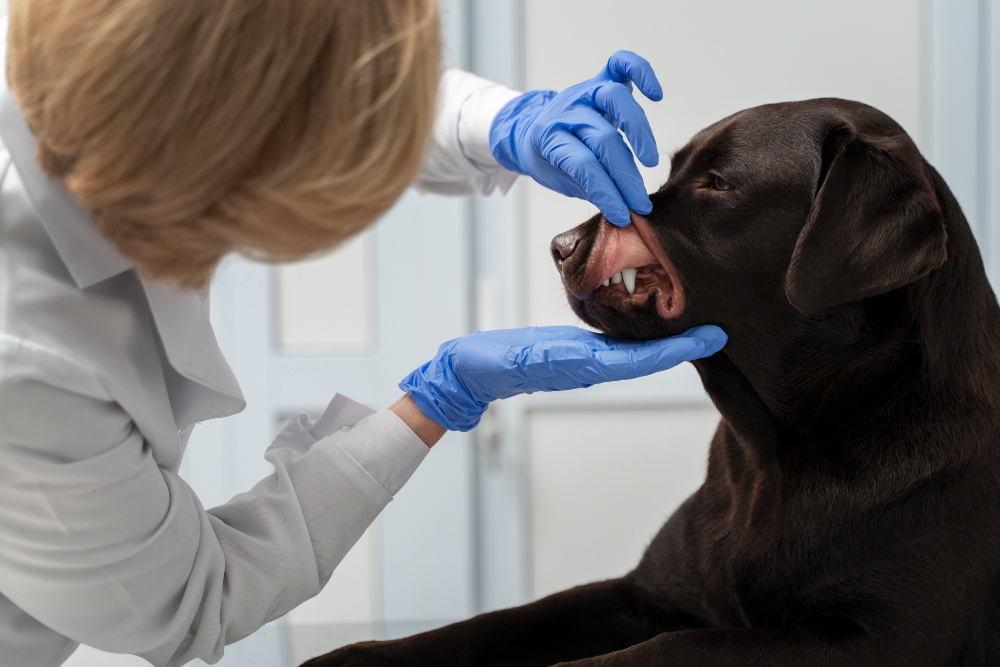Understanding Pet Oral Tumors: A Guide for Pet Owners

Understanding Pet Oral Tumors: A Guide for Pet Owners

Caring for a beloved pet involves ensuring their well-being through every stage of life. Sometimes, health challenges such as oral tumors can impact your pet's quality of life, presenting complex decisions for pet owners. If you're facing difficult decisions about your pet’s care, it's essential to understand pet oral tumors and your options, including compassionate services like in-home euthanasia in Jupiter, FL.
What Are Pet Oral Tumors?
Oral tumors in pets are abnormal growths found in the mouth or surrounding areas, including the gums, tongue, jaw, or cheeks. These growths can be benign (non-cancerous) or malignant (cancerous). Unfortunately, malignant oral tumors are more common in pets and can spread quickly, impacting both their oral health and overall quality of life.
Common Types of Oral Tumors in Pets
- Melanoma
Oral melanoma is among the most aggressive types of oral cancer in pets. It often spreads to other parts of the body, making early detection critical.
- Squamous Cell Carcinoma (SCC)
SCC typically develops on the gums and may invade nearby bone tissue. While potentially aggressive, SCC usually doesn't spread far from the mouth.
- Fibrosarcoma
This type of tumor can invade surrounding tissues, including the jawbone, but is less likely to metastasize to distant organs.
- Epulides
These are benign growths that arise from periodontal tissue. Despite being non-cancerous, they can still cause discomfort and require treatment.
Understanding the type of oral tumor your pet has is crucial for making informed decisions about treatment options. Maintaining regular veterinary check-ups can help in early identification.
Symptoms of Pet Oral Tumors
Oral tumors can be subtle in their early stages, so it's important to monitor your pet for any unusual symptoms, such as:
- Difficulty eating or chewing
- Drooling excessively, sometimes with traces of blood
- Bad breath (halitosis)
- Visible lumps or masses in the mouth
- Swelling along the jaw or face
- Weight loss or loss of appetite
- Loose or displaced teeth
If you notice any of these signs, consult with your veterinarian immediately for a proper diagnosis.
Diagnosing Oral Tumors in Pets
Veterinarians rely on several diagnostic tools to confirm the presence and type of oral tumors, including:
- Physical Examination: Initial inspection of the oral cavity and surrounding areas.
- Biopsy: A small sample of the mass is taken for analysis to determine whether it is benign or malignant.
- Imaging: X-rays, CT scans, or MRIs may be used to assess tumor size and verify if it’s invading bones or spreading to other areas.
Timely diagnosis is essential, as it can directly influence the success of treatment and the management of your pet's health.
Treatment Options for Pet Oral Tumors
Effective management of oral tumors often depends on the type of tumor, stage of development, and overall health of your pet. Options include:
1. Surgical Removal
Surgery is one of the most common treatments for oral tumors. Veterinarians aim to remove the tumor entirely while minimizing damage to surrounding tissues. For smaller, benign growths, surgery may be curative. However, for malignant tumors, surgery may need to be paired with other treatments.
2. Radiation Therapy
For tumors that are too large or aggressive to remove completely, radiation therapy can help shrink the growth, manage pain, and improve the pet's quality of life.
3. Chemotherapy
Used most often in cases of malignant melanoma and other aggressive tumors, chemotherapy can slow cancer's progression and reduce its symptoms.
4. Palliative Care
If curative treatment isn't an option, palliative care focuses on managing pain and providing comfort. This approach is geared toward enhancing the pet's quality of life during advanced stages of illness.
When to Consider Euthanasia for Pet Oral Tumors
It’s heartbreaking, but when a pet’s quality of life begins to significantly decline, considering humane euthanasia is often the kindest choice. Signs that your pet may be experiencing unmanageable suffering include:
- Persistent pain despite medication
- Difficulty eating or drinking
- Rapid weight loss
- Difficulty breathing or swallowing
- Noticeable changes in mood or behavior indicating discomfort
For pet owners in Jupiter, FL, in-home euthanasia services provide a compassionate alternative, allowing your pet to pass peacefully in familiar surroundings. This private and comforting option can make a difficult situation more bearable for both pets and their families.
The Benefits of Choosing In-Home Euthanasia in Jupiter, FL
Choosing in-home euthanasia offers several emotional and practical benefits, such as:
- Comfort and Familiarity: Pets remain in a safe environment they know and love, surrounded by family.
- Reduced Stress: No need to transport your pet to a veterinary clinic when they may already feel unwell.
- Privacy: This intimate service ensures you can say goodbye in a peaceful and quiet setting.
- Compassionate Care: Veterinarians who provide in-home euthanasia understand the sensitive nature of this process and handle it with care and professionalism.
For those considering this option, Rover Veterinary Care in Jupiter, FL, provides thoughtful and experienced in-home euthanasia services. It’s important to remember that this decision is an act of love, focused on relieving your pet’s suffering.
Supporting Your Pet Through This Journey
Caring for a pet with an oral tumor is not easy, but there are ways to provide comfort and support:
- Maintain a Soft Diet
Ensure your pet can eat easily by offering softened food or switching to wet food.
- Follow Veterinary Advice
Stick to prescribed treatment plans, including medications for pain relief.
- Provide Love and Comfort
Spend as much quality time with your pet as possible. Pets sense their owners' emotions, so staying calm and loving can help keep them at ease.
- Monitor Their Quality of Life
Keep a close eye on your pet’s condition. Use tools like a Quality of Life scale to track their comfort and decide when it might be time to make difficult decisions like considering in-home euthanasia.
Final Thoughts
Navigating the challenges of pet oral tumors can be overwhelming, but you don’t have to face it alone. From early diagnosis to treatment options and end-of-life care like in-home euthanasia, there are ways to ensure your pet receives the compassion and care they deserve.
If you're in Jupiter, FL, and considering a humane and peaceful approach to your pet’s final moments, don’t hesitate to contact Rover Veterinary Care. With their experienced and caring team, in-home euthanasia can provide your pet with a dignified and loving farewell.
